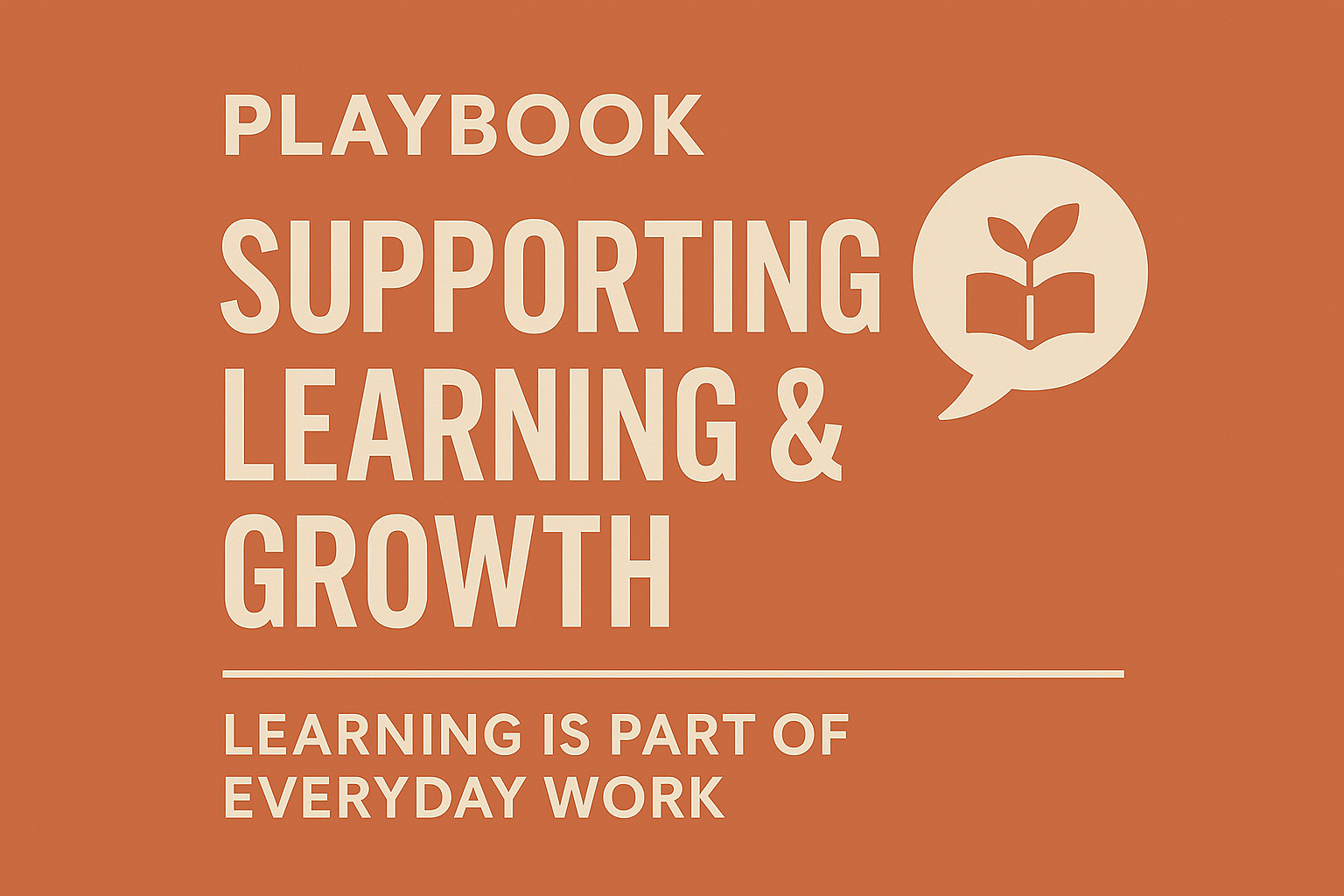Playbook : Supporting Learning & Growth Playbook

🌐 Purpose
To embed a culture of continuous learning, skill development, and career growth within digital engineering. This playbook equips teams and leaders with the mindset, mechanisms, and habits to prioritise learning as part of everyday work - not something that happens only outside of it.
⚖️ Principles
- Learning is a continuous, embedded practice - not an event
- Growth must be intentional, inclusive, and visible
- Everyone is both a learner and a teacher
- Career development is shared between individual and organisation
- Psychological safety underpins all meaningful learning
✅ What Good Looks Like
- Engineers allocate protected time for learning and experimentation
- Teams share learning through peer reviews, demos, retros, and documentation
- Managers support career conversations and tailored development plans
- Engineers are supported to deepen expertise and broaden perspective
- Learning outcomes inform work allocation, promotions, and goals
📅 Everyday Learning Practices
- Learning Fridays / 10% Time: Regular time blocked for personal or team learning
- Pair/Mob Programming: Real-time collaborative learning
- Demo Culture: Short, informal showcases of work-in-progress
- Backstage Sharing: Share what didn’t work, not just wins
- Learning Channels: Use Slack/Teams or wikis to share articles, courses, reflections
- Internal Tech Talks: Short talks from engineers to engineers
🤝 Team-Level Enablers
- Make learning goals part of sprint or team goals
- Run shared code reviews or show-and-tells focused on new approaches
- Allocate time in retros to share recent learnings
- Map skills in the team and encourage cross-skilling (T-shaped development)
- Nominate learning champions or guild leads
💼 Manager & Leader Responsibilities
- Hold regular career check-ins separate from performance reviews
- Help individuals identify stretch goals and mentorship opportunities
- Invest budget in relevant learning tools, books, and courses
- Encourage open discussion about growth aspirations and blockers
- Remove stigma from "I don’t know" or skill gaps
🎓 Structured Programmes
- Mentorship: Pair juniors with experienced peers inside/outside team
- Learning Pathways: Defined growth journeys by skill/domain level
- Tech Guilds: Voluntary communities of practice with regular events
- Certifications: Funded training aligned to career progression or business needs
- Hackathons / Innovation Days: Experimental learning opportunities
🔹 Learning Metrics to Monitor
- % engineers with active development plans
- Participation in learning events or guilds
- Internal mobility and role changes across teams
- Satisfaction with growth conversations (pulse surveys)
- Learning time tracked vs. learning time encouraged
🔑 Governance Link
This playbook supports:
- Policy: Foster Craftsmanship & Mastery, Psychological Safety First
- Standards: Promote Continuous Learning, Invest in Learning & Growth, Establish Career Progression, Support Mentorship & Peer Learning
📖 Further Reading
- "Drive" by Daniel Pink (on mastery and motivation)
- "The Fifth Discipline" by Peter Senge
- "Team Topologies" (on enabling learning through team structures)
- Engineering Ladders and Competency Frameworks (e.g. progression.fyi)
- Thoughtworks Technology Radar (for staying current with trends)